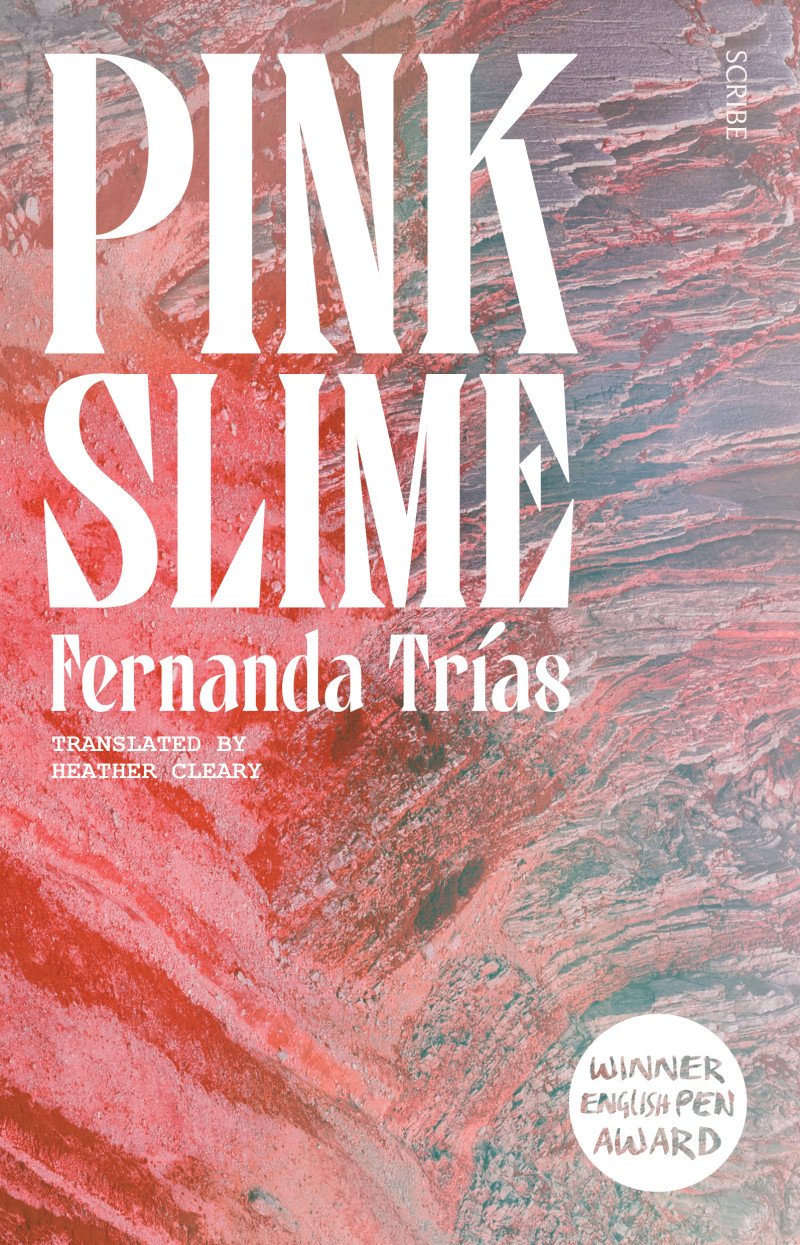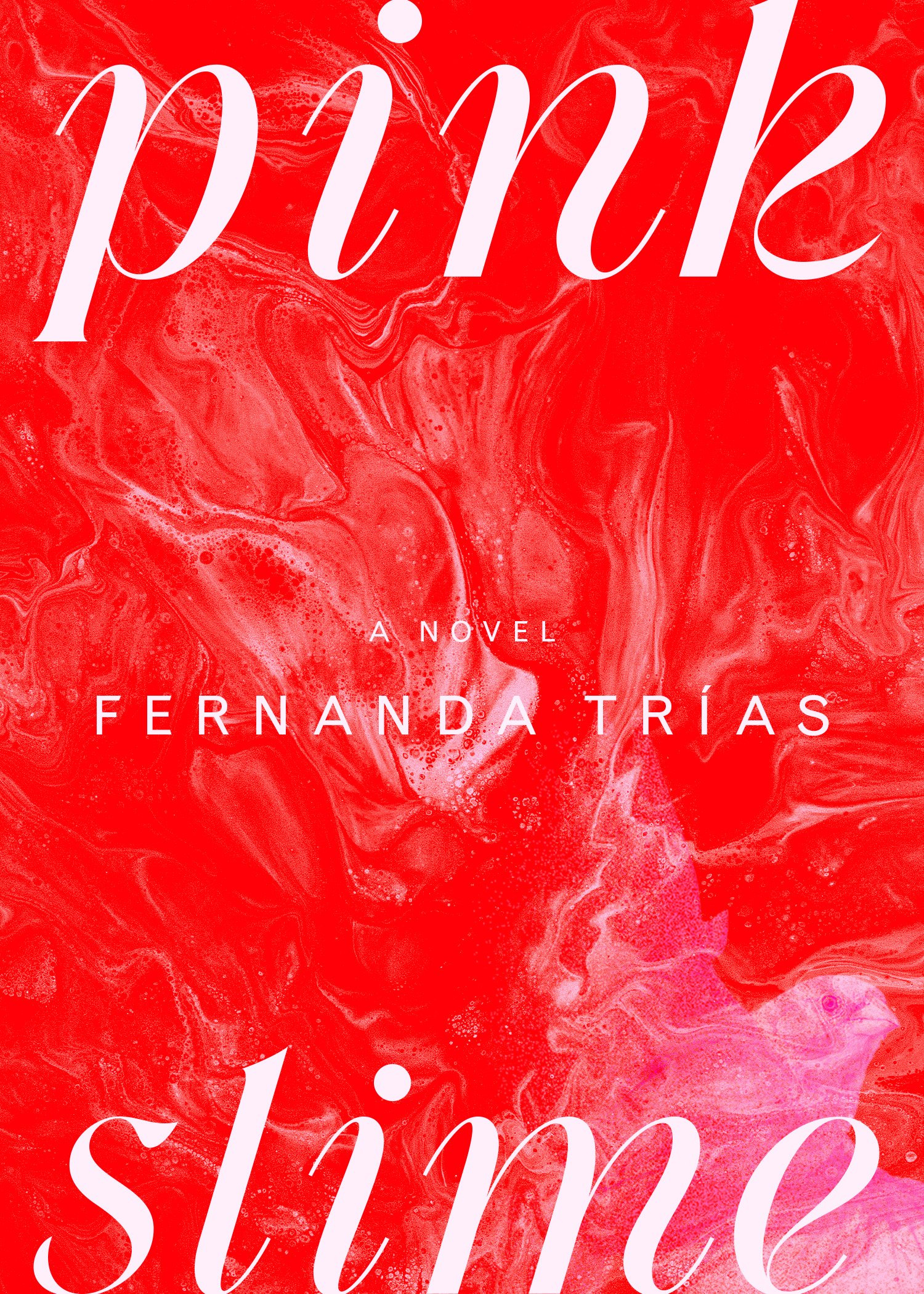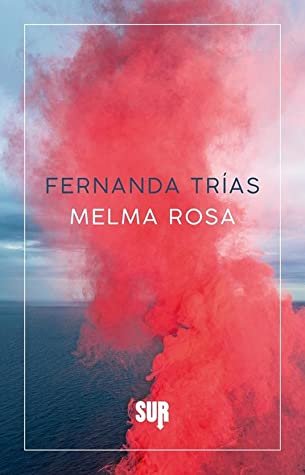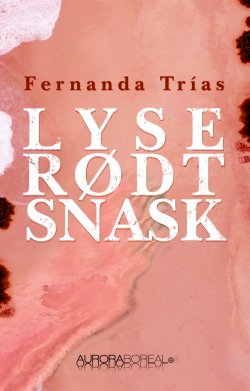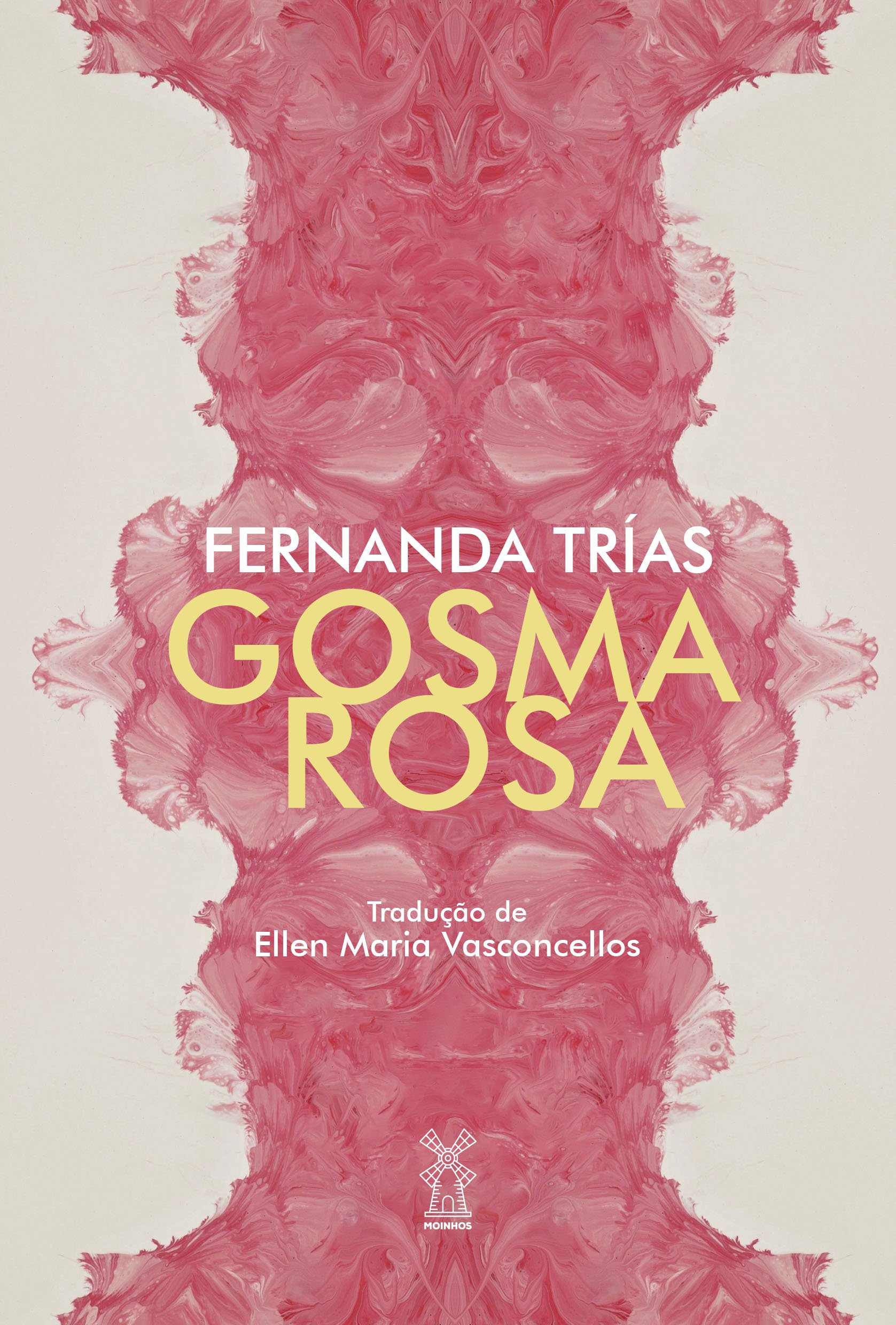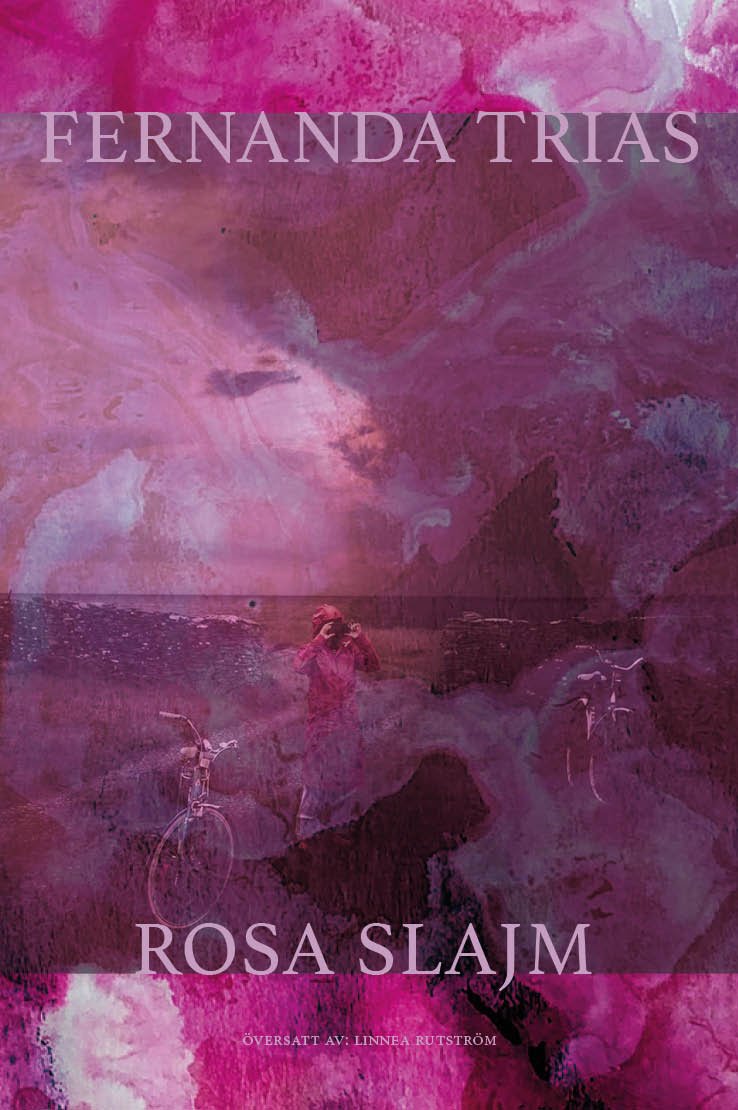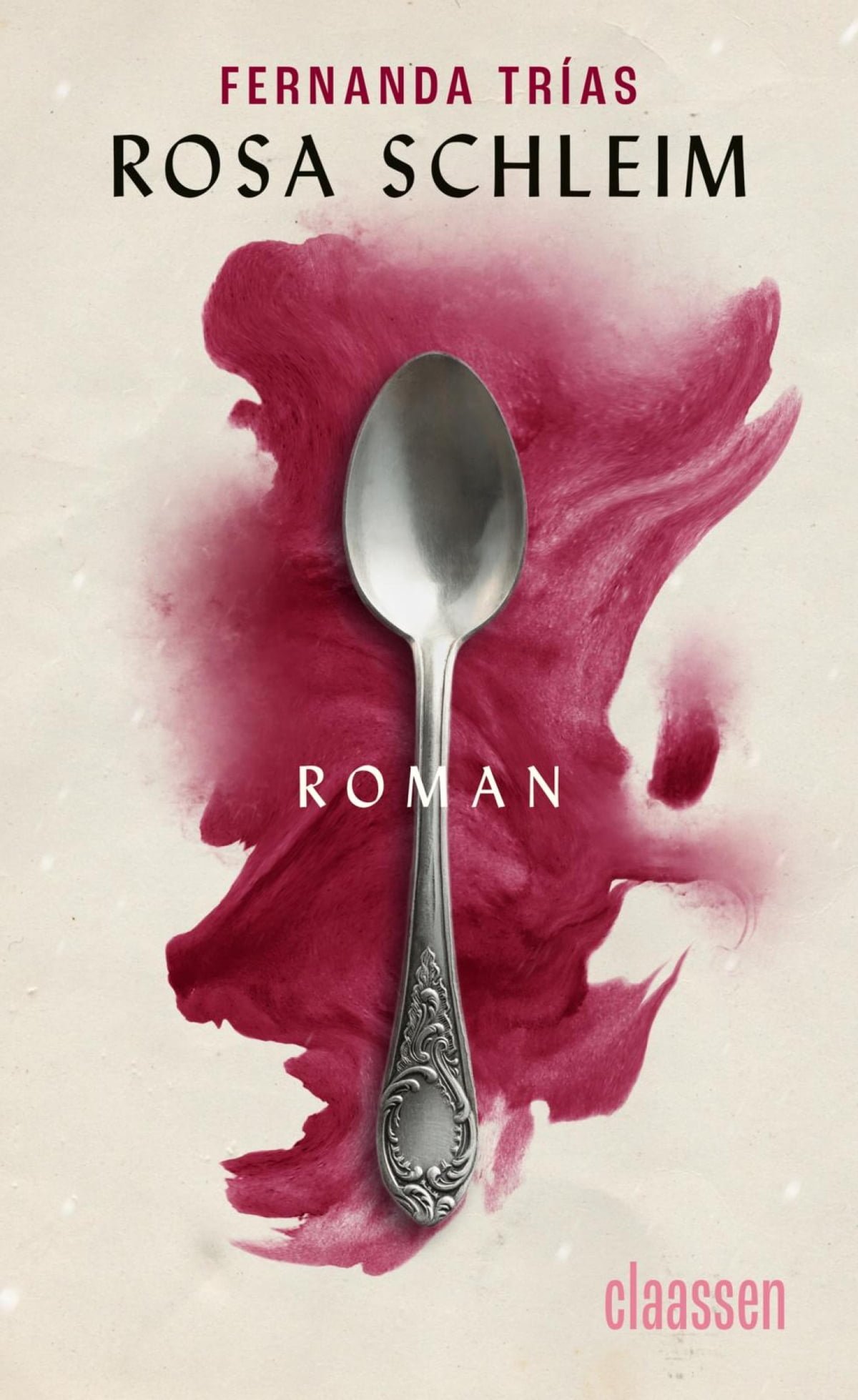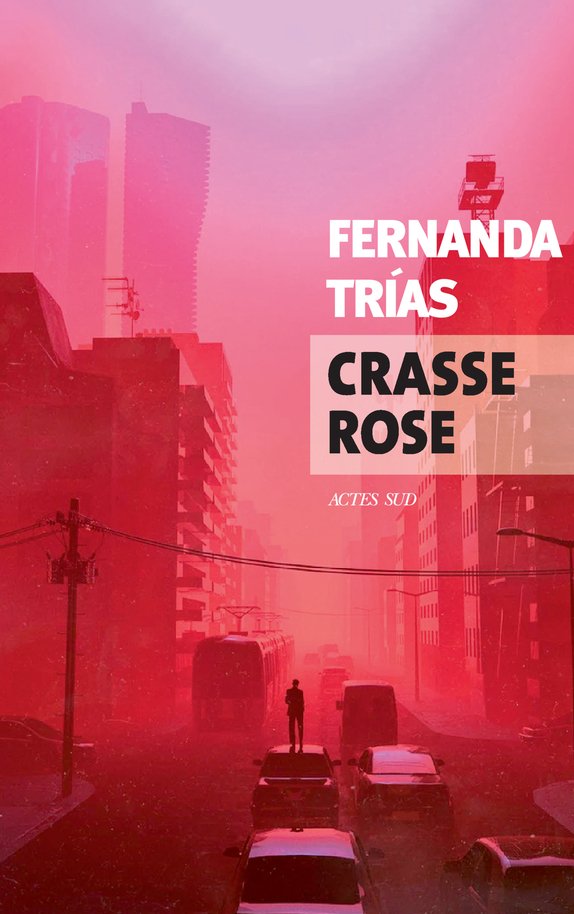Mugre rosa
Fernanda Trías
NOVEL | 2020 | 280 pages
LONGLISTED FOR THE 2024 NATIONAL BOOK AWARD FOR TRANSLATED LITERATURE
WINNER OF A PEN TRANSLATES AWARD
WINNER OF THE 2021 SOR JUANA INÉS DE LA CRUZ PRIZE
WINNER OF THE 2021 BARTOLOMÉ-HIDALGO FICTION PRIZE
WINNER OF THE 2021 NATIONAL URUGUAYAN LITERATURE PRIZE
In a port city reminiscent of Montevideo that is ravaged by a mysterious plague, a woman tries to understand why her world is falling apart. It isn’t only the looming plague and death, the algae and poisonous winds, or the pink paste that is the only thing available to eat—but the collapse of all of her emotional ties, the uncertainty, and the emergence of a radical solitude.
With disquieting prose that is rich with poetic discoveries, Fernanda Trías creates an extraordinary world that uncovers the immense beauty and pain in the fragility of human relationships.
RIGHTS: spanish LITERATURA RANDOM HOUSE | spanish (bolivia) EDITORIAL MANTIS | english (world) SCRIBE | english (usa) SCRIBNER | italian SUR | portuguese (brazil) MOINHOS | danish AURORA BOREAL | swedish PROSAK FORLAG | french ACTES SUD | arabic DAR ATHAR | german ULLSTEIN | spanish audio AUDIBLE | turkish KULTUR YAYINLARI | georgian SULAKAURI PUBLISHING | polish PAUZA | greek CARNIVORA | albanian OMBRA GVG | korean PINKWHALE | chinese THE WRITERS’ PUBLISHING HOUSE | film PANORAMA ENTERTAINMENT
“[PINK SLIME] begins with a suffocating sense of doom and doesn’t let up from there…This is a stunningly dark novel, but a beautiful one; Trías’s prose and Cleary’s translation perfectly capture what it feels like to live in an epidemic…This is a knockout story. Stunning writing makes this a startlingly powerful novel.”
“An eerily calm tale…told in a conversational yet purposely discomfiting future subjunctive tense…a compelling tale with an unhurried pace that is striking for how it juxtaposes lyricism with banality. With her eerie and unnervingly probable plot, strong narrative voice, and focus on the small, beautiful moments of life amid disaster, Trias’s tale will continue to haunt readers long after they turn the final page.”
“Vivid…[PINK SLIME] captures with its increasingly claustrophobic atmosphere, and Trías keenly explores the resentments that fester within a mother-daughter relationship, a failing marriage, and childcare work. Readers will be gripped.”
“Pink Slime is a dystopia all too near to us, in which human connections and sadness over the end matter more than any explanation of the fog and disease that shroud everything. Trías’ writing, precise and poetic, turns this beautiful novel into a toxic dream, into a meditation on ruins, bodies, and solitude.”
“This is not a dystopia, but a full-on, Technicolor apocalypse. Cleverly, the links between conditions, illness and the churn of the world are never made explicit. That we are in the company of someone who truly cares makes the horror all the more visceral. (...) Pink Slime kept me guessing; but the guesswork is far less important than the emotional heft of it. What caused this chaos, this heartbreak? The pink slime was never the algae or the wind or the rendered meat. The pink slime is us.”
“No one writes like Fernanda Trías. Reading her is like watching a revelation or an undressing. That revelation starts appearing gradually and irresistibly, phase by phase, and then you realize that you are the one being undressed. That’s what you have to be open to when you come close to this pure narrator. Mugre rosa might well be her best book, although it’s odd to think that way when every single one of Fernanda’s books is a one-of-a-kind exploration. It is her longest book, that’s an objective fact, and the luck is all ours. Understand this, then, as both an invitation and a warning.”
“If, as it has been said before, literature does have two prophetic gifts, Mugre rosa would confirm this: Fernanda Trías crafted this novel set in the suffocating atmosphere of a plague long before the 2020 pandemic. But—although it might seem like it at the start—this is not a dystopic work, but rather one with an extremely powerful metaphor of an emotional world in crisis where everything is about to collapse, held together by the weak threads of memory, tenderness, solidarity, and the effort to make it to a place where life is different. The language in Mugre rosa is charged with poetic breath but never loses its tie to the concrete, wisely leaning on the details. Reading this novel is both stimulating and disturbing, and after closing it, its images will continue chasing us for a long time, charged with beauty and melancholy. Truly extraordinary.”
“In all of Fernanda Trías’s work—from her extraordinary novel La azotea to her moving auto-fictional essay La ciudad invisible—the outside world appears as a threat. Her characters, creatures who are terrified of the world and yearning for calm and care, search for salvation in a self-imposed lockdown within the claustrophobia of their original homes. In Mugre rosa, all of this author’s vital and literary exploration is radicalized: a red wind arrives in Montevideo and endangers everyone outside. During this necessary lockdown—a mandatory, much more intense one—emotional relationships become much more suffocating: they become relationships that confine the characters within their confinement. Trías’s gaze, however—her quiet and disquieting writing, poetic and precise—creates cracks and escapes all over the place: in the hearts of her creatures, in their relationships, in the damaged world.”
“If you have ever either desired or feared becoming an orphan—forget your parents, think of the world that is decomposing in front of you, of the time that stopped a few years ago, of the vanishing hope—don’t even think about it: read Mugre rosa, go inside and live in it. I promise that when you close this novel, when you start to remember its scenes, its climate, its sounds and protagonists, you will feel the weight of the void, solitude, and silence that is left behind by the cruelest form of orphanhood.”
“Fernanda Trías explores daily life, or that strange pain that comes with loss, from a perspective that radiates beauty. A beauty that lights up the darkness but that, more often than not, leaves us uncomfortable, expectant, without knowing what to do. In all of her work, Trías keeps one ear open to familiar whispers, those half-truths, those feelings that sometimes rot, sometimes overflow.”
“In the morning, the beaches were covered in sliver fishes, like a rug made out of bottle caps or fragments of glass,’ says this distressing and emotional science-fiction novel that tells the story of how an inexplicable plague destroys a city much like Montevideo in its first pages. While saving up to move to Brazil, the protagonist has to go between her impossible mother, her long-lost love—who is now hospitalized—and the boy she takes care of, sick with unlimited gluttony. The collapse of the food supply, bodies, feelings, and the system is narrated with a heartbreaking beauty. The Uruguayan writer won the 2018 SEGIB-Eñe-Casa Prize to write this novel, so any resemblances to the reality of this year are prescient coincidences.”
“This is a novel about distance: the one that separates us from catastrophe, from people we’ve loved, and also from death, when the latter is experienced as a silent vermin in the known world. The narrator insists on asking for the border between endings and beginnings, telling us her survival story in a port city infested by toxic algae, mutant fish, and industrial stenches from an artificial meat named ‘mugre rosa [pink filth].’ In this apocalyptic and solitary scenario, images of love, maternity, and childhood resonate with a strange and fascinating power.”
“With disquieting and delicious prose, Trías discovers the immense beauty and pain in the fragility of human relationships.”
“Halfway between a classic dystopia like 1984 or Farenheit 451 and one of the great catastrophe novels by J.G. Ballard like The Drowned World or The Drought, Mugre rosa tells the story of a woman and her solitude, of an ecological cataclysm and a ruined world, of maternity, hunger, and silence. Always intense and evocative, and with a subtle construction of layers and mechanisms, this new novel by Fernanda Trías transcends genres (science-fiction, dystopia, eco-catastrophe) and installs itself in a unique territory, at the border of horror without fully sinking into that abyss: a devastating space that is not completely void of hope. Trías’s prose, precise and elegant, is able to bravely look into the abyss with tenderness in the same breath, to return to the central themes of what it means to be human in our culture (finitude, conscience, pain, uncertainty, empathy, care, solidarity), and, at the same time, to participate in the contemporary debate about the place that this humanity occupies in a world of crisis. Faced with an estuary infested by algae and mutant fish, winds that carry the plague, in between men and women who lose their skin with their last, destructive contact with the outside world (a world that is perhaps not too different from ours), and surrounded by mirrors and ghosts from her childhood, family, and country, the narrator in Mugre rosa—like the unforgettable Beckett—will have to find that place from where she can let go, where she’ll have to keep going because there’s nothing else to do but advance or retreat no matter where, beyond that transfigured Montevideo where she lives and its citizens who have been consumed by the plague. Fernanda Trías has created a mirror where we can see these strange times we are having to live through, and has given her faithful readers the best out of all her novels.”
“Like a premonition, Fernanda Trías (Montevideo, 1976) has taken a risk with a dystopia that reminds us of the present. An invisible plague and an environment in a constant state of degradation are the sinister stage of Mugre rosa [Pink slime]. This ominous novel predicts a universe similar to the one that began with the pandemic, one charged with contradictory uncertainties, and it acts like a potential environment where the author can take her obsessions to the extreme and once again consolidate the oppressive and suffocating form that stands out in all of her work. ”
“She breaks through parameters, shatters expectations, breaks down internal walls like that invading algae that changes the lives of the residents in the town. Almost like Rulfo in Comala. A poetic and tenacious whirlwind, dreadful and sublime. (...) An extraordinary work!”
“Mugre rosa is a powerful novel—short phrases, unusual poetic twists, the attachment to human ties as a reason to overcome chaos, the insistence of love over heartbreak despite everything. An extraordinary dystopian novel. Highly recommended.”
“After Samanta Schweblin’s Fever Dream and Mariana Enríquez’s Our Share of Night, Pink Slime by Fernanda Trías completes a triptych of extraordinary works that have come to us in the last decade from the Rio de la Plata area. Three very different novels that, however, share the force with which they look straight into the abyss, maintaining the lucidity necessary to focus of every each revealing detail.”
“Mugre rosa surprises us due to the maturity of the psychological analysis, its capacity to construct a complex narrative, and even more so with its writing, which is as visionary as it is precise, luminous, and powerful.”
“Language, accent, musicality: Fernanda Trías responds with a mixed style, a combination of stories and images that come from the Latin American tradition. She recounts the underwater world that exists after rising seas and frozen hearts, the crabs that represent the enormity of that which is approaching: the end of the world.”
“Every page exhibits the progression of an incredibly rich and effective visual writing: fog that presses its long fingers into everything; mold that eats through wood beneath its intact surface; silvery blankets of dead fish; rivers that look like a collection of laboratory samples. In the end, the city is like ‘a cleaned carcass in the distance,’ while the protagonist propels herself toward the unknown and finally admits, “I cannot stop a future that has already arrived.’”
“Pink Slime is constructed with a pen so delicate that it seems perfectly real... Fernanda Trías has written a book in which her enveloping language uses empathy to tell the story of humanity resisting when faced with a world in crisis.”
“While the dystopian context is well constructed, Fernanda Trías is at her best in the exploration of affective relationships. The story of the end of the narrator’s relationship with Max, the story of a life, is dramatic and moving at the same time. [In this] novel — that belongs to that genre of books that don’t abandon you once you finish reading but rather force you to continue thinking about them, to keep returning to them — the stubbornness upon which we all depend in order to save ourselves and others, those we love, and our environment begins to emerge.”
“With its powerful prose and piercing exploration of the human condition that evoke The Plague by Albert Camus, with an aesthetics of destruction that recalls the work of J.G. Ballard, and with ecological and political considerations that remind us of Soylent Green, Pink Slime is an intoxicating work, the melancholy song of the world’s irrevocable despair... The Uruguayan writer Fernanda Trías is one of the most promising figures of this feminine and feminist new wave.”
“The Uruguayan author plunges us into a poetic, metaphysical dystopia.”
“Pink Slime, like all truly great novels, etches itself indelibly onto the sensitive plate of one’s mind.” ”
“Fernanda Trías revisits the apocalyptic novel with subtlety and intelligence; not as a heroic epic of survival, but through intense emotions and a choice that must be made... A fascinating book.”
“Between an aesthetics of devastation and a chromatic journey [Pink Slime is] an epic eco-poetic fable.”
“Powerful and beautifully written, this is a disturbing read, depicting a terrifyingly convincing near-future scenario.”
“Despite the unfathomable changes wreaking havoc on Trías’ deftly drawn world, it’s relationships that are at the core of this story. (...) In many ways, Pink Slime is a treatise on caregiving. Trías expertly encapsulates the relationship between mother and child, obligation and affection, and the conflation of fear with love.”
“In writing about the ways folks hold together during difficult times, Trias untangles the myths and realities of resilience.”
“A genuinely unsettling example of eco/body horror that’s also a commentary on motherhood…this is a beautiful and elegiac meditation on parenting – in this case, the deep connection between a mother and son.”
“An intimate, melancholic look at the ecologically ravaged future.”
“Like a faintly distorting mirror, Pink Slime reflects back to us the image of a dying world. In this country, abandoned by God and government, the only consolation is the compassion and silent heroism of a few human beings. With her meticulous prose and the painful lucidity characteristic of her work, Fernanda Trías immerses us in a dystopia that expands around us like a poisonous perfume.”
“Like a nightmare, like an omen, like the lines of an exquisite poem, Pink Slime echoes in my memory long after I read it. A book has never been so relevant, necessary, painful, and simply splendid.”
“It’s a dystopic work worthy of JG Ballard, where even in hopelessness there remains a flickering shard of hope or resignation.”
“A well-imagined, often poetically beautiful plague story.”
“Trías’s prose, in Heather Cleary’s terrific translation, pulls you in slowly until you find you can’t put the book down—like being locked in during a wind alarm, trying your best to keep your footing.”
“Even if you’re wary of reading a pandemic novel, give this one, by Uruguayan author Fernanda Trías, a chance...Trías conveys the horror of mass illness perfectly in this enormously unsettling but surprisingly beautiful novel.”
“A compulsively readable work of climate fiction.”
“Latin American fantastika is in the midst of a remarkable renaissance. The latest of this string of exhilarating new books to find its way into English is Uruguayan novelist Fernanda Trías’s Pink Slime.”
BY FERNANDA TRÍAS:
Miembro fantasma
STORIES, 2026
El monte de las furias
NOVEL, 2025
Mugre rosa
NOVEL, 2020
La azotea
NOVEL, 2018
No soñarás flores
STORIES, 2016
La ciudad invencible
NOVEL, 2013

